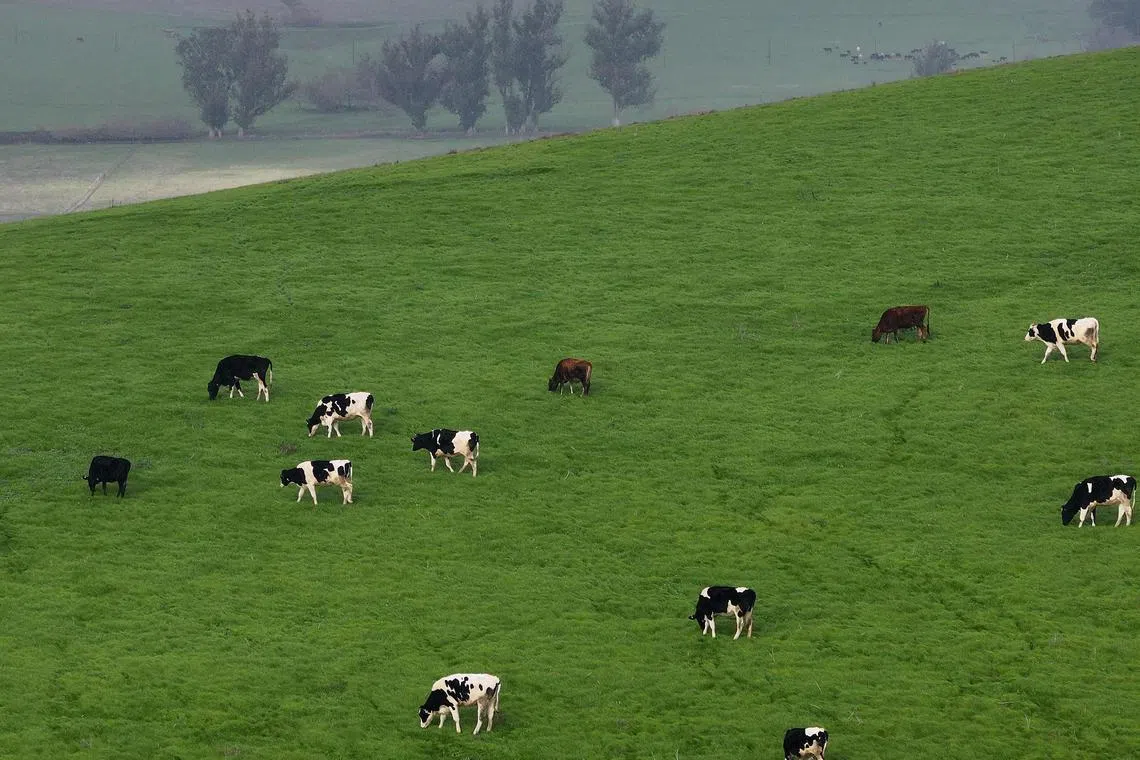State of emergency declared in California after cows in 645 dairies stricken with bird flu
Sign up now: Get ST's newsletters delivered to your inbox

Cows in more than 645 dairies in California have tested positive for H5N1.
PHOTO: AFP
Follow topic:
SAN FRANCISCO - A fast-growing outbreak of avian flu has upended California’s dairy industry, the nation’s largest producer of milk, infecting most of the state’s herds and putting thousands of farmworkers at risk for contracting the virus.
In about four months, cows in 645 dairies in California have tested positive for H5N1, even as many ranchers have taken strict precautions to stop the spread. US Governor Gavin Newsom was concerned enough on Dec 18, that he declared a state of emergency over the outbreak.
The virus is spreading so quickly that dairy farmers are calling it “COVID for cows”, and scientists are racing to figure out how to stop the contagion.
“We’re trying to do everything we possibly can, and this has just been the worst crisis we’ve ever dealt with in the dairy industry in California,” said Ms Anja Raudabaugh, CEO of Western United Dairies, a trade organisation that represents most of the state’s dairy farms.
Avian flu primarily affects birds, but it can also infect mammals, including humans. There have been 61 human cases reported in the United States so far in 2024, and most of the individuals have had mild symptoms.
But officials reported on Dec 18 that the America’s first severe human case of infection
There has been no evidence that the virus can spread easily between humans. The most common way humans have contracted bird flu has appeared to be through close contact with infected cattle and poultry. The virus was first detected in cows early in 2024 in Texas, but has since reached 15 other states.
Consuming eggs and pasteurised milk won’t make people sick, according to the US Food and Drug Administration.
Milk from infected cows has very high levels of the virus, and experts believe that contaminated vehicles, equipment and workers play a role in spreading the virus from farm to farm. Those who milk cows can face high risks because the virus is highly concentrated in infected milk, said Dr Michael Payne, a veterinary medicine expert at the University of California, Davis.
Farmers took precautions by cutting off contact with other dairy farms, regularly testing their milk

